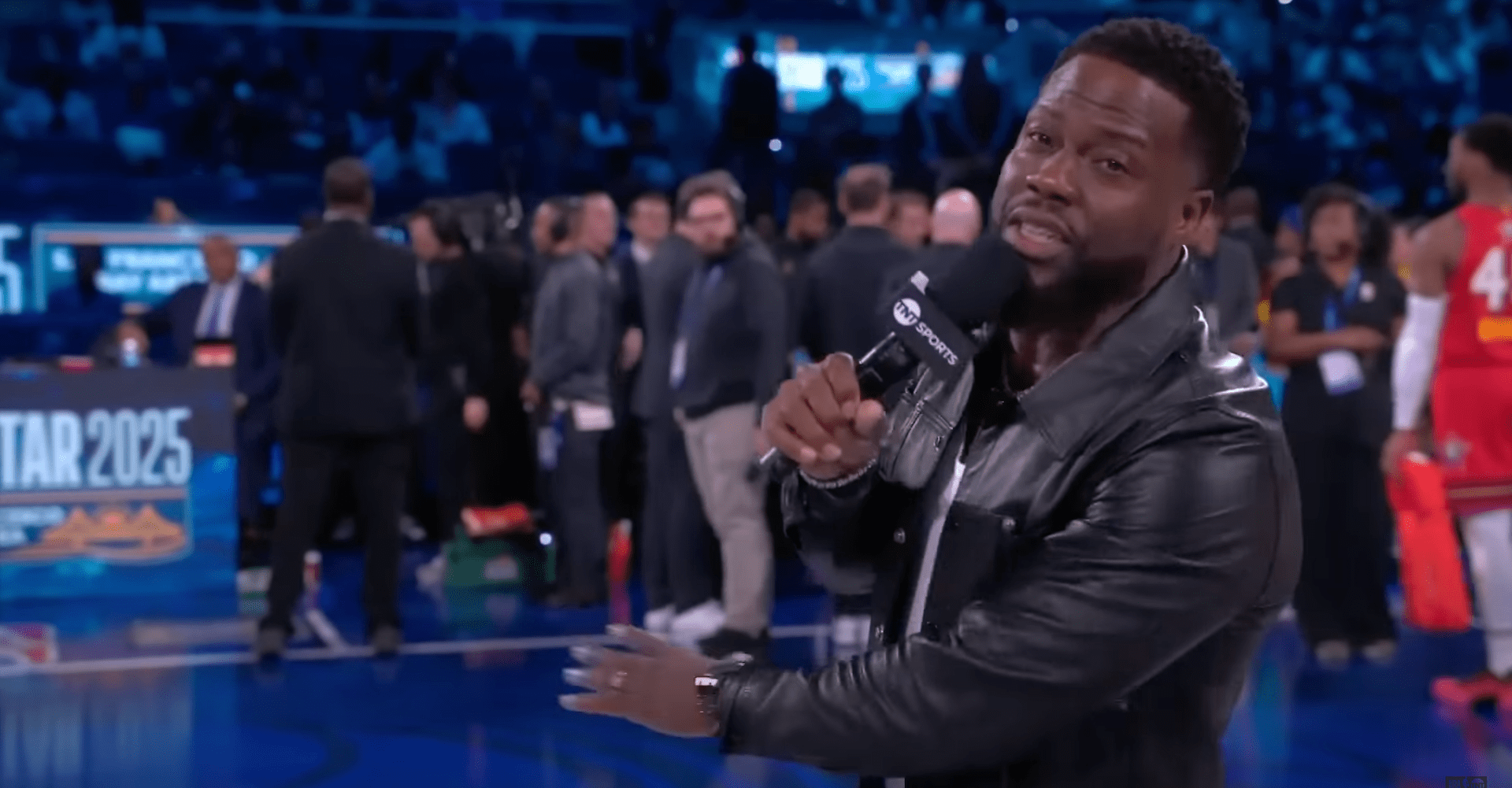I thought I was being smart when I turned the NBA All-Star Game on 30 minutes late. NBA tip-off times are notoriously far afield of what is promised by TV listings, and I wasn't eager to spend any more time than was absolutely necessary watching pregame ceremonies, or listening to Kevin Hart talk. 8:30 ET seemed like a good time to tune in, even if it meant I might end up missing the first few minutes of the first game. When the TV flicked on, that game hadn't started yet, and Kevin Hart was screaming at me.
This was supposed to be the All-Star Game that got things back on track, whatever that means. Commissioner Adam Silver, who never misses an opportunity to bemoan the lack of effort and attention given to the All-Star Game by the players, unveiled a new format that was meant to force a little competitive spirit into the game. Instead of one normal game—between East and West, or Americans and internationals, or Team LeBron and Team Ghost Of Kobe Bryant—we were treated to three mini-games that would make up a tournament. Three separate teams of all-stars, selected by Shaquille O'Neal, Candace Parker, and Kenny Smith, were thrown into a bracket with the Rising Stars team. The winners of the two semifinal games, played to 40 points, advanced to the final, also played to 40 points.
This absolutely sucked, for reasons that had very little to do with the basketball being played. We cannot blame everything on Kevin Hart here, but we can definitely get pretty close. He was installed as the in-game emcee, and Hart seemed to be under the impression that because he and LeBron James pretend to like each other in commercials, he has a rapport with every star player in the NBA. The arena's PA system was turned over to him for portions of each game, which he used to attempt what I guess you would call NBA-themed roast comedy, as performed by a guy who doesn't seem to watch the NBA. He kept complaining about how the big men were shooting too many threes, and demanding that they "get in the box," delivering that uncanny collection of words as if they were a hilarious punchline. Shai Gilgeous-Alexander was not amused.
When the first game ended, a prolonged "halftime" break started, during which viewers were treated to long commercial blocks sandwiching Draymond Green and the rest of the TNT studio crew complaining about the new format from behind a desk outside the arena. Any opportunity for kinship between Green and the viewer on this was foreclosed by the fact that his complaints were (as usual) based on his own inscrutable hangups and not on on the broadcast inflicting a full-length halftime show headlined by Draymond Green on us after one quarter of basketball. By the time MrBeast walked onto the floor to subject a random fan to some psychological damage, I realized that I'd been watching this thing for more than an hour and had seen about 12 minutes of actual basketball.
I then watched an hour-long episode of a television show, and returned to the broadcast to discover that I had only missed the second mini-game. The first thing I heard was Green hissing that Dalton Knecht had a spot on the Rising Stars team, despite not even having an NBA team, an insight that was both inaccurate and delivered in an overbearingly smug tone. There was more of the second "halftime" show to come, and then more commercials, and then more of Kevin Hart vamping at mid-court. Eventually the final game started, and after a few minutes of play it was paused so that Hart could lead a drawn-out ceremony honoring the cast of Inside The NBA, who are not dying but merely moving to another network next season.
In the end, we were given a three-hour broadcast that featured almost twice as many minutes dedicated to commercials as basketball, shot through with as much of Kevin Hart's squawking and Draymond Green's grousing as any person could hope to handle.
If nothing else, this year's All-Star Game demonstrated why Silver's complaints about it should never be taken seriously. When the commissioner decries the lack of effort shown by players who participate in the game, what he is really upset about is the difficulty he faces in selling the game to advertisers. Whatever new interest or competitive spirit might have been conjured by this new format was immediately swallowed up by Silver's decision to turn the broadcast into a three-hour commercial for and celebration of the idea of watching NBA basketball on TV, without the basketball. The players were asked to care about a series of gimmicky games played in 10-12 minute spurts, the intermissions between games were stretched to their breaking points for the sake of fitting in more ads, Kevin Hart was allowed to make fun of the players while they were on the court playing basketball, and the final game was paused after just a few minutes so that some old guys could stand at center court and endure more of Hart's jokes. Who is it that doesn't take this game seriously enough?






